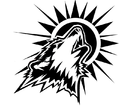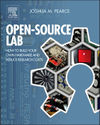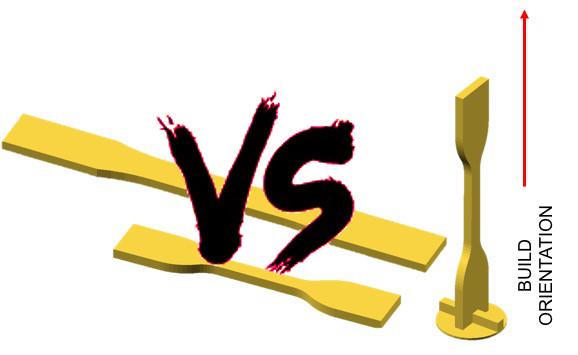Anisotropic mechanical property variance between ASTM D638-14 type I and type IV fused filament fabricated specimens

|
By Michigan Tech's Open Sustainability Technology Lab.
Wanted: Students to make a distributed future with solar-powered open-source RepRap 3-D printing and recyclebot recycling. |

|
| This page is part of an international project hosted by MOST to use RepRap 3-D printing to make OSAT for sustainable development. Learn more.
Research: Open source 3-D printing of OSAT • RecycleBot • LCA of home recycling • Green Distributed Recycling • Ethical Filament • LCA of distributed manufacturing • RepRap LCA Energy and CO2 • Solar-powered RepRaps • solar powered recyclebot • Feasibility hub • Mechanical testing • Lessons learned • MOST RepRap Build Make me: Want to build a MOST RepRap? - Start here! • Delta Build Overview:MOST • Athena Build Overview • MOST metal 3-D printer • Humanitarian Crisis Response 3-D Printer |
Contents
Source
- John J. Laureto and Joshua M. Pearce. Anisotropic mechanical property variance between ASTM D638-14 type I and type IV fused filament fabricated specimens. Polymer Testing 68: 294-301 (2018). DOI: 10.1016/j.polymertesting.2018.04.029 open access
Abstract
The open source introduction of fused filament fabrication (FFF) enables distributed manufacturing of consumer products. However, with a wide range of low-cost FFF 3-D printers and settings possible, there is a lack of information on the variability in printed mechanical properties. This paper utilizes a large pool of 47 user-assembled 3-D printers to quantify the mechanical property variations of ultimate tensile strength (UTS) and yield strength of FFF printed components using ASTM D638-14 horizontally-oriented Type I and IV geometries for poly lactic acid (PLA). The results indicate that utilizing Type IV tensile test piece geometry may overestimate the UTS relative to the Type I. Furthermore, anisotropic mechanical property variances were quantified for Type IV specimens (vertical and horizontal orientations). Vertical tensile specimens had an ultimate tensile strength 47.9% less than horizontal. Finally, the abundant supply of PLA 3-D prints suggest open-source printers assembled by individual operators can produce quality plastic components although the mechanical performance of the given part can vary dramatically based on the operator selection of printing parameters that provide a visually acceptable part.
Highlights
- Wide range of FFF 3-D printers and settings create variability in printed mechanical properties.
- Here a large pool of user-assembled 3-D printers to quantify ultimate tensile strength (UTS).
- And yield strength using ASTM D638-14 horizontally-oriented Type I and IV geometries.
- Tensile strengths of 61.6 and 60.9 MPa were observed for Type IV and Type I, respectively.
- Check: Tensile component geometry is equivalent to the desired printed component geometry.
Keywords
3D printing; Mechanical testing; Polylactic acid; RepRap; Fused filament fabrication; FDM
See Also
- Mechanical Properties of Components Fabricated with Open-Source 3-D Printers Under Realistic Environmental Conditions
- Tensile Strength of Commercial Polymer Materials for Fused Filament Fabrication 3-D Printing
- The Effects of PLA Color on Material Properties of 3-D Printed Components
- Viability of Distributed Manufacturing of Bicycle Components with 3-D Printing: CEN Standardized Polylactic Acid Pedal Testing
- Open source rapid prototyping of OSAT
- RepRap Mechanical Testing Literature Review
- Tensile_test_protocol:_MOST
- Environmental life cycle analysis of distributed 3-D printing and conventional manufacturing of polymer products
- Recyclebot
- Life cycle analysis of distributed recycling of post-consumer high density polyethylene for 3-D printing filament
- Recyclebot on RepRap wiki
- Mechanical testing of polymer components made with the RepRap 3-D printer
- Development and feasibility of applications for the RepRap 3-D printer
- Life cycle analysis of distributed polymer recycling
- Solar powered distributed customized manufacturing
- MOST RepRap Build
- Life cycle analysis of distributed polymer recycling
- Applications of RepRap distributed production - literature review
- What is the influence of infill %, layer height and infill pattern on my 3D prints?
- A few ways to strengthen 3D printed parts - STEP 3D (really nice summary of methods to strengthen parts)
Future
- Toward improvement of the properties of parts manufactured by FFF (Fused Filament Fabrication) through understanding the influence of temperature and rheological behaviour on the coalescence phenomenon http://aip.scitation.org/doi/pdf/10.1063/1.5008034
- ANALYSIS OF EFFECT OF INTERNAL STRUCTURES ON TENSILE STRENGTH OF THE FDM PARTS http://acadpubl.eu/jsi/2017-115-6-7/articles/6/16.pdf
| This page is part of an international project hosted by MOST to use RepRap 3-D printing to make OSAT for sustainable development. Learn more.
Research: Open source 3-D printing of OSAT • RecycleBot • LCA of home recycling • Green Distributed Recycling • Ethical Filament • LCA of distributed manufacturing • RepRap LCA Energy and CO2 • Solar-powered RepRaps • solar powered recyclebot • Feasibility hub • Mechanical testing • Lessons learned • MOST RepRap Build Make me: Want to build a MOST RepRap? - Start here! • Delta Build Overview:MOST • Athena Build Overview • MOST metal 3-D printer • Humanitarian Crisis Response 3-D Printer |
